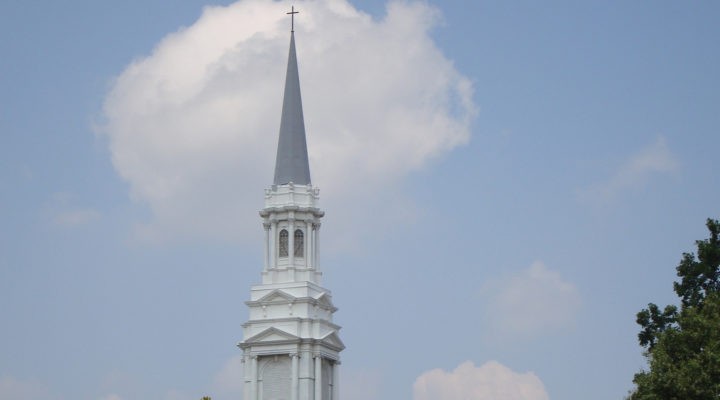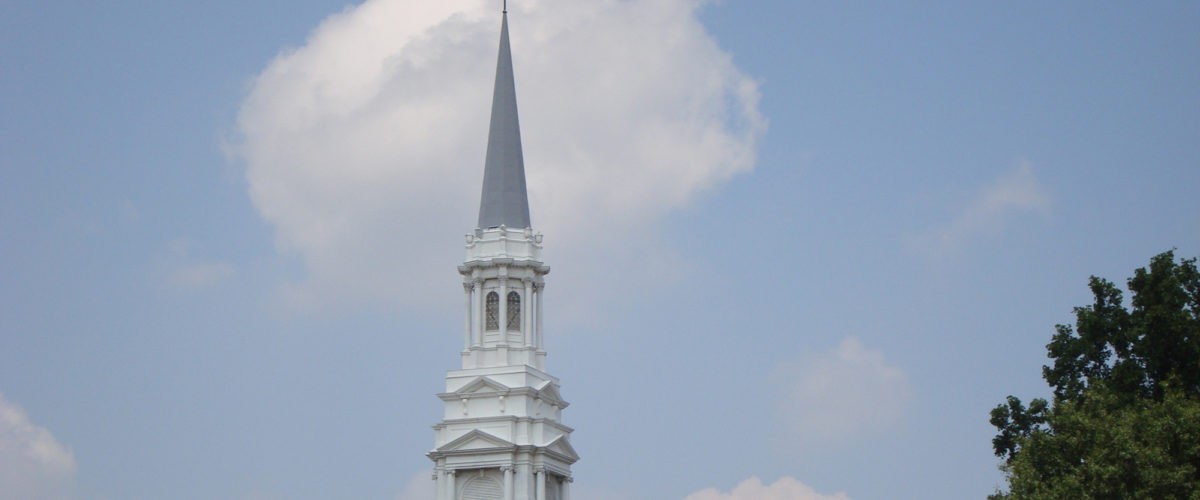One of the most iconic Baptist churches in central Atlanta will give up about half its 12-acre property in a plan to relaunch the congregation and serve the community through a missions and ministry endowment.
Wieuca Road Baptist Church has changed its name to Church at Wieuca, it announced March 25. Further, the church announced a partnership with Greenstone Properties to reimagine its campus in the high-dollar business and residential district known as Buckhead. Greenstone is a real estate development firm that creates office, hotel and mixed-use spaces.
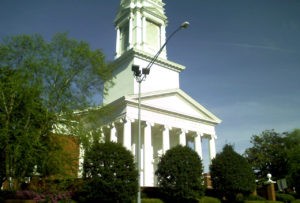
(Creative Commons license via Flickr)
The prominent Atlanta site on Peachtree Road will be redeveloped into what the church called a “live-work-pray community” that could include a high-rise apartment tower, office space and other housing.
It is likely that the church’s Georgian-style sanctuary and bell tower will remain as they currently appear on the exterior, even though the interior of the 1,200-seat sanctuary likely will be reconfigured.
Although terms of the deal were not disclosed, the church intends to take half the proceeds from developing its property and create an endowment for missions and ministries. Another portion will be set aside for future property maintenance.
A decision years in the making
This decision is the culmination of years of internal discussion within the congregation, which has experienced numerical decline since the early 1990s. Previous offers to purchase the prominent property or redevelop it or to merge with other Baptist churches have been declined.
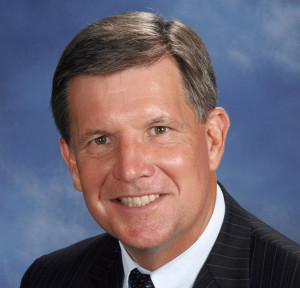
Barry Howard
At one point a few years ago, the congregation was presented with several options and voted to stay put and “try harder,” said Pastor Barry Howard, who started at the church Jan. 6, 2020, just two months before the coronavirus pandemic shut down in-person worship.
Despite the congregation’s good intentions — and well before COVID — “the harder they tried, the worse it got,” Howard said. “You’re not going to rebuild the 1970s and ’80s. The old Wieuca is gone.”
An overnight success story
From its birth in 1954, Wieuca was an almost instant success story. Started as a mission church of Second Ponce de Leon Baptist Church, Wieuca landed in a hot real estate market that was rapidly developing amid a bustling business community. Nearby Lenox Square Mall was under construction, and Phipps Plaza Mall soon would follow. Skyscrapers and housing were popping up all over.
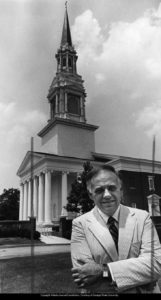
Bill Self with Wieuca sanctuary in background. (Photo courtesy of Georgia State University Digital Archives)
“When the church was planted here, they went out and knocked on doors and people came in droves,” Howard said. Then the church called a young, dynamic pastor, Bill Self, and the church “zoomed. They were up over a thousand members within the first 10 years.”
One church history book reports that Wieuca was begun with 300 in attendance on the first Sunday and that the original members included “five deacons, 25 Sunday school teachers (and) three millionaires.”
Such rapid growth for Baptist churches was not uncommon in the post-World War II era, when church attendance, especially in the South, was commonplace and cities like Atlanta were booming.
The church and Self — who served Wieuca from 1964 to 1990 — both gained prominence not only in Atlanta but in the Southern Baptist Convention. Wieuca became one of the largest Baptist churches in Atlanta, with about 3,000 members and up to 1,500 people in weekly worship attendance.
Reassessing the present day
Then due to many of the same factors that have changed churches nationwide, the church began a decline in the early 1990s and has struggled to regain its glory days. Today, the church counts about 270 active members and was running about 100 in attendance prior to COVID. Worship had been moved from the enormous sanctuary to a smaller room in the building.
Howard said, realistically, those glory days are gone. But he sees a new kind of success story in the future for Church at Wieuca through doubling current attendance and expanding missions and ministries.
“We have great potential to be a vibrant, healthy church of 300 to 350 people,” he explained, “a church that operates all week long, not just Sunday.”
‘Not about counting who comes’
Wieuca already has several local ministries sharing space in its 139,000 square-feet of buildings. Those ministries, including a popular day school, will continue, and the church will expand its footprint in community ministries while shrinking its physical footprint.
“Church is not about counting who comes, but about how we connect with the community,” Howard said. “The church’s ministry here will always be bigger than any given number of people who assemble under this roof at one time.”
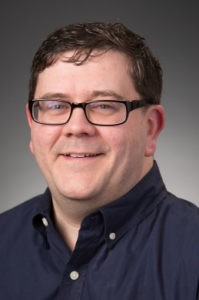
Josh Speight
In preparation for this new challenge, the congregation not only called Howard, who is 61, as pastor but also recently called a young minister, Josh Speight, as associate pastor.
While up to half the current congregation has been in the church 40 or 50 years — including three living charter members — the congregation also has welcomed a number of new young adults recently, Howard said.
He calls what’s happening at Wieuca a “relaunch.” That includes a new name, a new way to think about property and buildings, and a new way to engage in community ministries beyond the church property.
Financial security
Key to all this is finances, though.
“Part of the financial challenge here is not only having a shrinking congregation but having deferred maintenance on such a huge complex,” Howard said. “When the majority of your offering plate gifts go to keep the campus operational, it thwarts your mission.”
The new plan to leverage the church’s extremely valuable location will create a revenue stream that will “remove that burden of deferred maintenance” and ensure resources for local ministry, he explained.
“When the majority of your offering plate gifts go to keep the campus operational, it thwarts your mission.”
“The greatest asset probably the church has is its land,” he said. “How do you take that asset and leverage it for kingdom purposes? The revenue will allow the church to update and redream its campus … (and) to create a mission and ministry endowment. We’re not going to create a fund to pay the bills. We’re not just going to buy more time for the church to get another 10 years and then die a slow and painful death. We’re going to make a commitment to grow ourselves to be self-sustaining. And the endowment will do wonderful things beyond what we can do with the church budget.”
In all this, he hopes there will emerge a model that other shrinking congregations might emulate.
“One of the things all churches should be challenged to do is create ancillary partnerships where you share your space and share the cost of keeping up the space,” he noted. “Not becoming venues just for the sake of making a profit but sharing space for the good of the kingdom.”
When other churches face the same options Wieuca has faced — such as closure or merger — he hopes some will consider the option to “relaunch” as “a valid kingdom option.”
Related articles:
Well-known Baptist church in Atlanta is staying put
Longtime Baptist leader Bill Self dies at 83
12 trends for being church in a post-pandemic world | Opinion by Barry Howard
Property sale positions Atlanta church to engage its vibrant neighborhood

